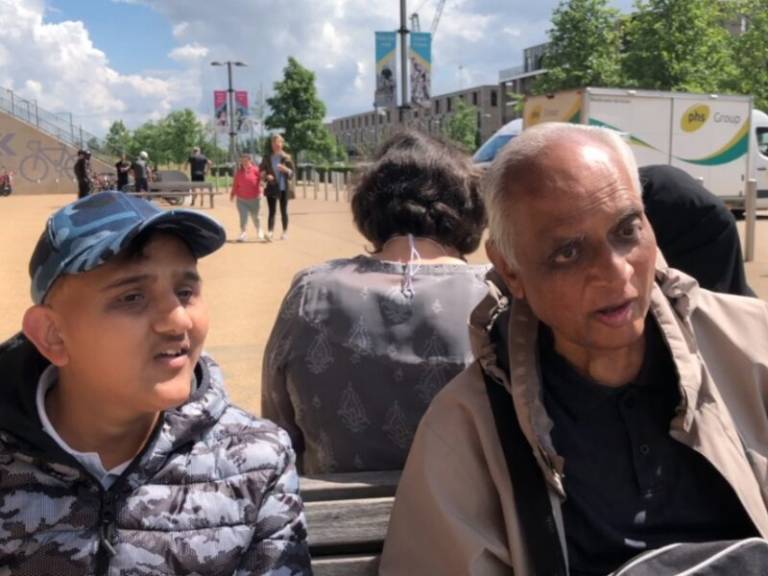Blog and podcast: Amplifying disabled voices by listening to the community
23 August 2021
As the Tokyo 2020 Paralympic Games has brought issues of accessibility to the top of the agenda, the GDI Hub reflects on how much the Queen Elizabeth Olympic Park was a precursor in that regard, and how they are going from strength to strength by involving the local community.

The Global Disability Innovation (GDI) Hub is a research and practice centre that was created as part of the legacy of the impressive London 2012 Paralympic Games, aiming to capitalise on its transformative impacts to drive disability innovation for a fairer world. In 2022 it will move to UCL’s new campus on Queen Elizabeth Olympic Park, which has been leading the way on inclusive design and community engagement from the start of its development.
Maryam Bandukda, PhD student at the GDI hub, has received funding from UCL East and the EPSRC to lead public engagement activities in east London. Through these, she met two east London residents, Vijay and Hasmukh. Both blind, they were happy to share with her their experiences of using the Olympic Park.
In particular, she joined them for a ride on one of the side-by-side tandem bicycles provided by the Bikeworks accessible cycling club. Vijay told her that he enjoys the freedom and agency provided by these types of bicycles, and said that the Olympic Park is an ideal space for communities to visit.
The Olympic Park has been designed to be as accessible and inclusive as possible for a wide range of visitors. It includes a flat walking surface throughout and stair-free access. However, as Hasmukh demonstrated to Maryam, open walking surface can make it difficult for blind people to navigate.
In this regard, tactile guide lines, such as the one present at the entrance area to the Olympic Park, are useful, he said – and he would like to see more of these implemented in large open spaces.
The GDI Hub is also a founding member of the WeThe15 campaign, a global movement launched at the Tokyo 2020 Paralympic Games aiming to change attitudes and create more opportunities for persons with disabilities, as well as improve mobility and accessibility. The WeThe15 campaign involves 35 countries and over 70 partners including organisations such as UNICEF, WHO, Clinton Access Initiative for Health, and aspires to be the world’s biggest human rights movement representing the 1.2 billion people with disabilities who make up 15% of global population.
This arises from the GDI Hub’s overall aim to drive change and deliver a fairer world for all by taking concepts and lessons from the 2012 Games and sharing them across global programmes and partnerships.
The London 2012 Games, and now the Tokyo 2020 Games, provide an opportunity to spur change thanks to the cultural inclusiveness and transformative power of sport. This, together with UCL’s strong interest in meaningful partnerships, means the ‘big ideas’ of the Paralympic Games and WeThe15 are incredibly important to the GDI Hub and UCL East, said Professor Cathy Holloway, Academic Director of GDI Hub and Professor at UCL’s Interaction Centre on a recent London Legacy Development Corporation (LLDC) podcast.
CEO of the GDI Hub Vicki Austin points to the inclusivity that formed a part of the 2012 Olympic bid from its inception. This, she argues on the podcast, also shows the power of community engagement – inclusivity and accessibility was put forward by disabled east Londoners before it was a component of the formal bid.
For the GDI Hub’s Director of Inclusive Design, Iain McKinnon, the scale and level of ambition for inclusive design was a real success of the 2012 Games. This included thinking about the whole journey to and from the Park: in the LLDC podcast, Iain notes that the redevelopment of transport links, such as London Underground stations, were also an important part of the Park development.
You can read Maryam Bandukda’s full blog to learn more, and listen to the LLDC podcast on the legacy of the London 2012 Paralympics.
 Close
Close

